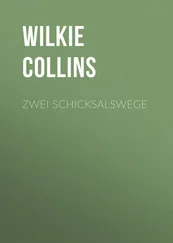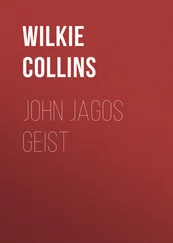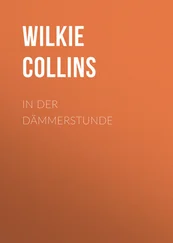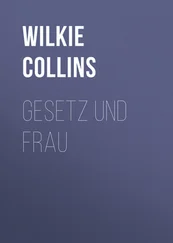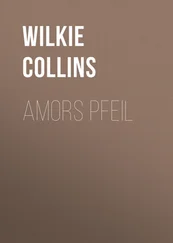Wilkie Collins - Little Novels
Здесь есть возможность читать онлайн «Wilkie Collins - Little Novels» весь текст электронной книги совершенно бесплатно (целиком полную версию без сокращений). В некоторых случаях можно слушать аудио, скачать через торрент в формате fb2 и присутствует краткое содержание. Год выпуска: 1999, Жанр: Классическая проза, на английском языке. Описание произведения, (предисловие) а так же отзывы посетителей доступны на портале библиотеки ЛибКат.
- Название:Little Novels
- Автор:
- Жанр:
- Год:1999
- ISBN:нет данных
- Рейтинг книги:5 / 5. Голосов: 1
-
Избранное:Добавить в избранное
- Отзывы:
-
Ваша оценка:
- 100
- 1
- 2
- 3
- 4
- 5
Little Novels: краткое содержание, описание и аннотация
Предлагаем к чтению аннотацию, описание, краткое содержание или предисловие (зависит от того, что написал сам автор книги «Little Novels»). Если вы не нашли необходимую информацию о книге — напишите в комментариях, мы постараемся отыскать её.
Little Novels — читать онлайн бесплатно полную книгу (весь текст) целиком
Ниже представлен текст книги, разбитый по страницам. Система сохранения места последней прочитанной страницы, позволяет с удобством читать онлайн бесплатно книгу «Little Novels», без необходимости каждый раз заново искать на чём Вы остановились. Поставьте закладку, и сможете в любой момент перейти на страницу, на которой закончили чтение.
Интервал:
Закладка:
“You must be careful, policeman,” he says. “I found the man lying on his back, in bed, dead—with the knife that had killed him left sticking in the wound.”
Hearing this, I felt the necessity of sending at once to the station. Where could I find a trustworthy messenger? I took the liberty of asking the doctor if he would repeat to the police what he had already said to me. The station was not much out of his way home. He kindly granted my request.
The landlady (Mrs. Crosscapel) joined us while we were talking. She was still a young woman; not easily frightened, as far as I could see, even by a murder in the house. Her husband was in the passage behind her. He looked old enough to be her father; and he so trembled with terror that some people might have taken him for the guilty person. I removed the key from the street door, after locking it; and I said to the landlady: “Nobody must leave the house, or enter the house, till the Inspector comes. I must examine the premises to see if any on e has broken in.”
“There is the key of the area gate,” she said, in answer to me. “It’s always kept locked. Come downstairs and see for yourself.” Priscilla went with us. Her mistress set her to work to light the kitchen fire. “Some of us,” says Mrs. Crosscapel, “may be the better for a cup of tea.” I remarked that she took things easy, under the circumstances. She answered that the landlady of a London lodging-house could not afford to lose her wits, no matter what might happen.
I found the gate locked, and the shutters of the kitchen window fastened. The back kitchen and back door were secured in the same way. No person was concealed anywhere. Returning upstairs, I examined the front parlor window. There, again, the barred shutters answered for the security of that room. A cracked voice spoke through the door of the back parlor. “The policeman can come in,” it said, “if he will promise not to look at me.” I turned to the landlady for information. “It’s my parlor lodger, Miss Mybus,” she said, “a most respectable lady.” Going into the room, I saw something rolled up perpendicularly in the bed curtains. Miss Mybus had made herself modestly invisible in that way. Having now satisfied my mind about the security of the lower part of the house, and having the keys safe in my pocket, I was ready to go upstairs.
On our way to the upper regions I asked if there had been any visitors on the previous day. There had been only two visitors, friends of the lodgers—and Mrs. Crosscapel herself had let them both out. My next inquiry related to the lodgers themselves. On the ground floor there was Miss Mybus. On the first floor (occupying both rooms) Mr. Barfield, an old bachelor, employed in a merchant’s office. On the second floor, in the front room, Mr. John Zebedee, the murdered man, and his wife. In the back room, Mr. Deluc; described as a cigar agent, and supposed to be a Creole gentleman from Martinique. In the front garret, Mr. and Mrs. Crosscapel. In the back garret, the cook and the housemaid. These were the inhabitants, regularly accounted for. I asked about the servants. “Both excellent characters,” says the landlady, “or they would not be in my service.”
We reached the second floor, and found the housemaid on the watch outside the door of the front room. Not as nice a woman, personally, as the cook, and sadly frightened of course. Her mistress had posted her, to give the alarm in the case of an outbreak on the part of Mrs. Zebedee, kept locked up in the room. My arrival relieved the housemaid of further responsibility. She ran downstairs to her fellow-servant in the kitchen.
I asked Mrs. Crosscapel how and when the alarm of the murder had been given.
“Soon after three this morning,” says she, “I was woke by the screams of Mrs. Zebedee. I found her out here on the landing, and Mr. Deluc, in great alarm, trying to quiet her. Sleeping in the next room he had only to open his door, when her screams woke him. ‘My dear John’s murdered! I am the miserable wretch—I did it in my sleep!’ She repeated these frantic words over and over again, until she dropped in a swoon. Mr. Deluc and I carried her back into the bedroom. We both thought the poor creature had been driven distracted by some dreadful dream. But when we got to the bedside—don’t ask me what we saw; the doctor has told you about it already. I was once a nurse in a hospital, and accustomed, as such, to horrid sights. It turned me cold and giddy, notwithstanding. As for Mr. Deluc, I thought he would have had a fainting fit next.”
Hearing this, I inquired if Mrs. Zebedee had said or done any strange things since she had been Mrs. Crosscapel’s lodger.
“You think she’s mad?” says the landlady. “And anybody would be of your mind, when a woman accuses herself of murdering her husband in her sleep. All I can say is that, up to this morning, a more quiet, sensible, well-behaved little person than Mrs. Zebedee I never met with. Only just married, mind, and as fond of her unfortunate husband as a woman could be. I should have called them a pattern couple, in their own line of life.”
There was no more to be said on the landing. We unlocked the door and went into the room.
II.
HE lay in bed on his back as the doctor had described him. On the left side of his nightgown, just over his heart, the blood on the linen told its terrible tale. As well as one could judge, looking unwillingly at a dead face, he must have been a handsome young man in his lifetime. It was a sight to sadden anybody—but I think the most painful sensation was when my eyes fell next on his miserable wife.
She was down on the floor, crouched up in a corner—a dark little woman, smartly dressed in gay colors. Her black hair and her big brown eyes made the horrid paleness of her face look even more deadly white than perhaps it really was. She stared straight at us without appearing to see us. We spoke to her, and she never answered a word. She might have been dead—like her husband—except that she perpetually picked at her fingers, and shuddered every now and then as if she was cold. I went to her and tried to lift her up. She shrank back with a cry that well-nigh frightened me—not because it was loud, but because it was more like the cry of some animal than of a human being. However quietly she might have behaved in the landlady’s previous experience of her, she was beside herself now. I might have been moved by a natural pity for her, or I might have been completely upset in my mind—I only know this, I could not persuade myself that she was guilty. I even said to Mrs. Crosscapel, “I don’t believe she did it.”
While I spoke there was a knock at the door. I went downstairs at once, and admitted (to my great relief) the Inspector, accompanied by one of our men.
He waited downstairs to hear my report, and he approved of what I had done. “It looks as if the murder had been committed by somebody in the house.” Saying this, he left the man below, and went up with me to the second floor.
Before he had been a minute in the room, he discovered an object which had escaped my observation.
It was the knife that had done the deed.
The doctor had found it left in the body—had withdrawn it to probe the wound—and had laid it on the bedside table. It was one of those useful knives which contain a saw, a corkscrew, and other like implements. The big blade fastened back, when open, with a spring. Except where the blood was on it, it was as bright as when it had been purchased. A small metal plate was fastened to the horn handle, containing an inscription, only partly engraved, which ran thus: “To John Zebedee, from—” There it stopped, strangely enough.
Who or what had interrupted the engraver’s work? It was impossible even to guess. Nevertheless, the Inspector was encouraged.
Читать дальшеИнтервал:
Закладка:
Похожие книги на «Little Novels»
Представляем Вашему вниманию похожие книги на «Little Novels» списком для выбора. Мы отобрали схожую по названию и смыслу литературу в надежде предоставить читателям больше вариантов отыскать новые, интересные, ещё непрочитанные произведения.
Обсуждение, отзывы о книге «Little Novels» и просто собственные мнения читателей. Оставьте ваши комментарии, напишите, что Вы думаете о произведении, его смысле или главных героях. Укажите что конкретно понравилось, а что нет, и почему Вы так считаете.




